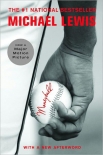Moneyball by Lewis, Michael (books to read in your 30s TXT) 📗

Book online «Moneyball by Lewis, Michael (books to read in your 30s TXT) 📗». Author Lewis, Michael
As the Oakland A’s trot out to their positions in the field, Paul takes his usual seat in front of one of the video screens. The camera pans to left field. There stands Jeremy Giambi, shifting back and forth unhappily, like a man waiting for an unpleasant phone call. He must know that he is standing in a place where he faces almost certain public humiliation. Paul can guess what Jeremy is thinking: Please don’t hit it to me. Perhaps also: If you do hit it to me, please be so kind as to hit it at me.
On the second pitch of the game, Alfonso Soriano doesn’t. The Yankees’ second baseman takes a fastball in the middle of the plate from A’s pitcher Eric Hiljus and smacks it deep into left field. Jeremy Giambi makes his way frantically back toward the left field wall, like a postman trying to escape a mad dog. He is the slowest man on the slowest team in professional baseball. When he runs, he manages somehow at the same time to convey personal embarrassment. He is too busy right now to wonder why he is playing left field at all, but he well might. He is playing left field not because he has any particular gift for plucking balls from the air but because he is even more gloriously inept when faced with the task of picking them up off the ground. Jeremy Giambi is in left field, to be exact, because the most efficient distribution of the A’s resources was to stick him there.
Jeremy Giambi believes he has reached the wall before he does. He gropes the air behind him with his free hand, then he looks up. Somewhere in the night sky is a ball; where, apparently, he is unsure. He jumps, or, at any rate, simulates the act of jumping. The ball somehow flies under his glove and bangs off the wall for a double. As Soriano zips around first base, I yell at the television—I hadn’t come here to watch the underdog lose—and only just stop myself from saying that the fans should sue for malpractice. There was something indecent about hurling abuse at Oakland A’s fielders, like hollering at cripples. It wasn’t their fault they’d landed in the middle of a lab experiment. Jeremy Giambi never asked to play left field.
Paul DePodesta hardly blinks. Life with no money was filled with embarrassing little trade-offs. The trick is to know precisely what trade-offs you were making. A farce in left field is merely the price of doing business with Jeremy Giambi’s bat. But it’s a complex transaction. The game is only two pitches old and already the cost is felt.
Soriano is standing on third base and Derek Jeter on first (infield single) when Jason Giambi first comes to the plate. The three Yankees on the field will be paid nearly as much this year as the A’s entire twenty-five-man roster. Giambi—Giambi’s money—transforms the arena. If you drilled a hole in either the roof or the front wall of the video room you would quickly reach the largest crowd in Oakland A’s history: 54,513 people had come tonight, and not merely because the New York Yankees were in town. They’d come because the past two years the A’s had been within a few outs of knocking the Yankees from the play-offs. They’d come to watch the latest plot twist in one of the great David and Goliath stories in professional sports: Goliath, dissatisfied with his size advantage, has bought David’s sling. The Oakland fans wave signs at Giambi: TRAITOR. SELLOUT. GREED. They scream worse things.
Yet in here, in the video room, their voices still cannot be heard. Six television screens display a soundless frenzy. No one in the video room so much as sighs. They have no interest in morality tales. Morality is for fans.
As Jason Giambi steps into the batter’s box, the TV cameras flash back and forth between him and his younger brother in left field. The announcers wish to draw out a few comparisons. Poor Jeremy. He still needed a baseball genius to divine his true worth but any moron could see the value of his older brother, at the plate. In all of baseball for the past few years there has been only one batter more useful to an offense: Barry Bonds. Giambi has all the crude offensive attributes—home runs, high batting average, a perennially high number of RBIs. He also has the subtler attributes. When he’s in the lineup, for instance, the opposing pitcher is forced to throw a lot more pitches than when he isn’t. The more pitches the opposing starting pitcher throws, the earlier he’ll be relieved. Relief pitchers aren’t starting pitchers for a reason: they aren’t as good. When a team wades into the opponent’s bullpen in the first game of a series, it feasts, in games two and three, on pitching that is not merely inferior but exhausted. “Baseball is a war of attrition,” Billy Beane was fond of saying, “and what’s being attrited is pitchers’ arms.”
A hitter like Giambi performed many imperceptible services for his team. His ability to wear down first string pitchers gave everyone else more chances to hit against the second string. This ability, like every other, grew directly from his perfect understanding of the strike zone. He had the hitter’s equivalent of perfect pitch, and the young men in the video room are attuned to its value.
“Watch,” says Paul, as $17 million a year of hitter steps up to the plate and stares blankly





Comments (0)